Welcome to the fourteenth episode of Dan Fournier’s Down the Rabbit Hole podcast.
Guest: Alberta lawyer Leighton Grey.
Leighton Grey is an Alberta-based lawyer fighting for the truth and is the host of the Grey Matter Podcast.
In this episode we dive deep into how Leighton was vilified by the Canadian press (with the CBC in particular) for speaking truths such as how Black Lives Matter is a Marxist organisation.
His professional association, The Alberta Law Society did little to protect his rights, even bending the knee to politically-motivated agendas, essentially enabling a cancel culture on Grey.
Our discussion covers a lot of ground about the legal landscape in Canada and how courts have evolved into left-leaning, woke echo chambers over the past couple of decades.
Is all lost? Or, can the judiciary in Canada return to its basic tenets of impartiality and blind justice, and rid itself of the rot of DEI and wokeism?
Alternative Podcast Links, listen on:
Spreaker (download the .mp3 for later listening)
Show Time Stamps
[00:00 to 00:58] Podcast intro.
[00:59 to 03:23] Welcoming Leighton Grey with a biographical introduction showing his impressive credentials.
[03:24 to 13:26] Hockey talk, including Leighton’s stint as a professional player with the Daytona Beach Sun Devils back in the early 90s. Who were his favourite NHL teams and players? Wokeism in professional sports. How Alberta’ major cities such as Edmonton and Calgary have become leftist strongholds and models for 15-minute cities versus the rural parts of the province.
[13:27 to 20:53] Leighton discusses his background heritage as a Status Indian, including his aunt and grandmother’s experience at the notorious Brandon Indian Residential School (see Show Notes below for more info). What was the reality of this school? Leighton offers a very balanced perspective to the contentious issue of residential schools.
[20:54 to 24:44] Leighton reveals why he decided to become a lawyer.
[24:45 to 28:56] I ask Leighton what is the most significant case (win or lose) he’s worked on. He name three – which all relate to the Covid-19 scamdemic. One case involved Grey being lead counsel in a case spearheaded by the Justice Centre for Constitutional Freedoms (JCCF) against Dr. Deena Hinshaw, Alberta’s Chief Medical Officer at the time, which challenged the lockdown orders in the province; the case proved successful. The other two cases involved the unlawful jailing of two Christian pastors.
[28:57 to 39:12] In this segment, I refer to how Leighton had been dragged through the mud for speaking out about Black Lives Matter and other inconvenient truths regarding Covid-19. He expanded on the specific events which led to this cancel culture / politically-motivated witch hunt against him, even my his own professional association, The Alberta Law Society. Leighton also talked about one of my recent articles which demonstrates how the Carbon Tax in Canada is being used to remove home affordability.
[39:13 to 49:56] I ask Leighton to respond to the allegations spun on him by what amounts to a hit piece by the CBC. The Canada of today is not the same as that of a few decades ago. Taking action (wisdom is action), including through speaking out via our podcasts.
[49:57 to 58:16] Here, I ask Leighton how other lawyers in Canada can push back against ill-treatment (cancel culture) by their respective professional associations who are increasingly becoming politically-driven arms of the state. We further discuss the persecution of lawyers (both in China and Canada).
[58:17 to 1:06:45] Now I ask Leighton the extent to which Freemasonry may be present in law societies and in the practice in general.
[1:06:46 to 1:18:59] For this question, I quoted a saying from a previous guest of mine, Gloriane Blais (a lawyer who was disbarred for speaking Covid-19 truths) who said: “Without Justice, there is no peace,” to which Leighton offered his astute interpretation. Leighton commenced by referring to Natural law and St. Thomas Aquinas’ Summa Theologica (see Show Notes below for more info) and Christianity. He touches upon the societal problem of how ordinary citizens are oblivious to what laws are on the books (and how they are made). Laws being made now...have no connection to reason, not being made by the proper authority, are not for our own good, and are largely incomprehensible. “We are being ruled by law, as opposed to being under the rule of law,” the lawyer affirms. The rule of law has meaning in states/countries that are driven by God. I personally stressed my frustration on how our laws in Canada – whether introduced by the House of Commons or the Senate – don’t even seem to be written by their Mps/Senators who are supposed the legislators authoring them. I gave two examples of Senate bills (S-243 and the Sergei Magnitsky Law) to illustrate my point in this skullduggery. Most bills nowadays are about the expansion of state power.
[1:19:00 to 1:29:37] Here, I ask Leighton for his take on how the Supreme Court of Canada had recently shown its left ideological leanings or wokeness by referring to women as “persons with vaginas.” Leighton referred to one of his related works, Juristic Park (podcast commentary here), in which he expands on the immorality of such dubious maneuvers. People are losing confidence in our system of justice.
[1:29:40 to 1:43:03] The next question relates to high-profile court cases in Canada (Pat King, Tamara Lich/Chris Barber, the Coutts 4 in Alberta, and the Ottawa Police Detective Helen Grus). I ask Leighton how he currently sees these and whether Canadians should still have faith in our judicial system. We also discuss how a tilt back towards God is in the works, especially with our youth. And I also refer to PIBs (Personal Information Banks) whereby various governmental institutions are secretly collection our personal information, including our health data.
[1:43:04 to 1:50:48] We end our talk with the more leisurely topic of movies. I shared some of my favourite law movies and Leighton shared some of his with surprising choices (see Show Notes below for more info on this).
[1:50:49 to 1:52:38] Where people can find Leighton online.
[1:52:55 to 1:55:58] Outro (song) - White Rabbit by Grace Slick of Jefferson Airplane.
Show Notes
Brandon Indian Residential School
Thought there’s a lot of controversy behind this particular residential school (as is the case with many others), there is much nuance to be contemplated. Leighton talks about some of the more positive aspects of such schools and that many have actually provided a lot of benefits to its participants.
I guess, it is for each to look at various materials related to these school in order to come up with a balanced perspective on them.
Here’s a documentary film – Brandon Indian Residential School: (1895 -1972) – by Jaguar Bird that includes a lot of information and photographs about the long history of the school:
Natural law & St. Thomas Aquinas’ Summa Theologica
Our seasoned lawyer talked about Natural law, citing some fundamental concepts enshrined in St. Thomas Aquina’s Summa Theologica.
Simplified for the layman, these four pillars on which law should stand consist of whether the law:
pertains to REASON (i.e., it has to be rational and make sense);
is always directed to the COMMON GOOD;
is made by the COMPETENT AND RIGHTFUL AUTHORITY;
is PROMULGATED (made known to the public).
These four pillars are described in more detail here.
Rabbit Shorts
Three Tips to Restore Public Trust
During the podcast, I asked Leighton how trust in public institutions – including the judiciary – can be restored.
I was really encouraged by his suggested three tips on how this could come about, namely:
Question Everything (or be more of a critical thinker).
Get involved and engaged, especially in your community.
Tilt back towards God.
I mentioned that the first one, to Question Everything, was dear to me (as a long time educator) and that when I taught students in China, I had the following poster on the wall to remind learners of this important concept (click the image to view the video clip):
“Where God is, men are free. Where he is not, men are slaves.”
I also mentioned how Canada was also founded on the Supremacy of God, referring to a prior interview I conducted with former OPP Officer Vincent Gircys. In my article for that interview, I posted a few photos of the Parliament building in Ottawa which has inscriptions of biblical quotes. Here is one of them:
The Parliament building’s South Window of the Peace Tower with the inscription “Give the king thy judgments, O God, and thy righteousness unto the king’s son” (Psalm 72:1). Photo source: Christian Roots Canada.
At the Movies with Leighton Grey
To lighten up the discussion, I asked Leighton what were some of his favourite law movies or TV shows.
I first mentioned some of my own favs in the 1957 classic 12 Angry Men, A Time to Kill (1996), and The Firm (1993).
Leighton mentioned that when he was young he watched the TV series called LA Law (which ran on NBC for eight seasons until 1994).
As for movies, Leighton mentioned some classics such as:
The Caine Mutiny (1954) starring Humphrey Bogart. View the original trailer or a scene from the film.
Witness for the Prosecution (1957) starring Marlene Dietrich and Charles Laughton. Watch the original trailer.
But then said that he prefers more light-hearted, somewhat comical, flicks that poke fun at the profession, including:
Liar Liar (1997) starring Jim Carey. Watch the trailer.
My Cousin Vinny (1992) starring Joe Pesci and Marisa Tomei. View the trailer here along with a funny scene:
The Rabbit Short clip can be viewed by clicking on the image below:
Signing Off
Special thanks to Leighton Grey for this fascinating conversation and for his outspokenness in the fight for truth and justice.
You can follow him via the following links:
Leighton Grey on Twitter/X with his Grey Matter Podcast.
His legal practice: Grey Wowk Spencer LLP, with his personal profile page.
Legal Matters profile & blog articles
His linktree contains many other links
Feel free to leave comments and/or questions below.
Learn more about Dan Fournier’s Down the Rabbit Hole podcast and the meaning behind its name:
See you next time.
Plea for your Support
Most articles and podcasts are free, but please support the work of this independent journalist by considering a paid subscription to his Substack (for only $5 a month, or $50 a year) and following his Twitter.
Disclaimer:
See the author’s About page for full disclaimer.




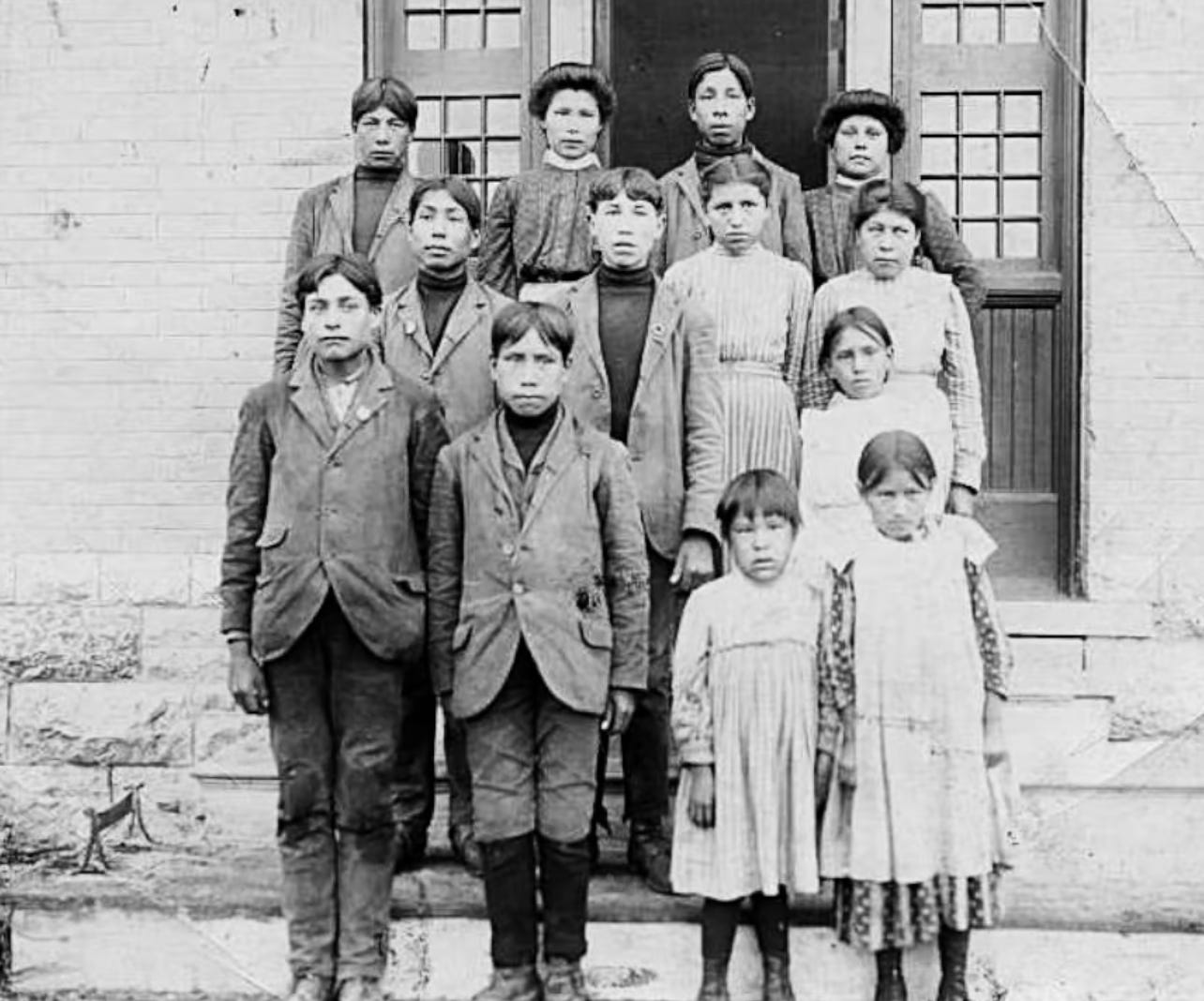
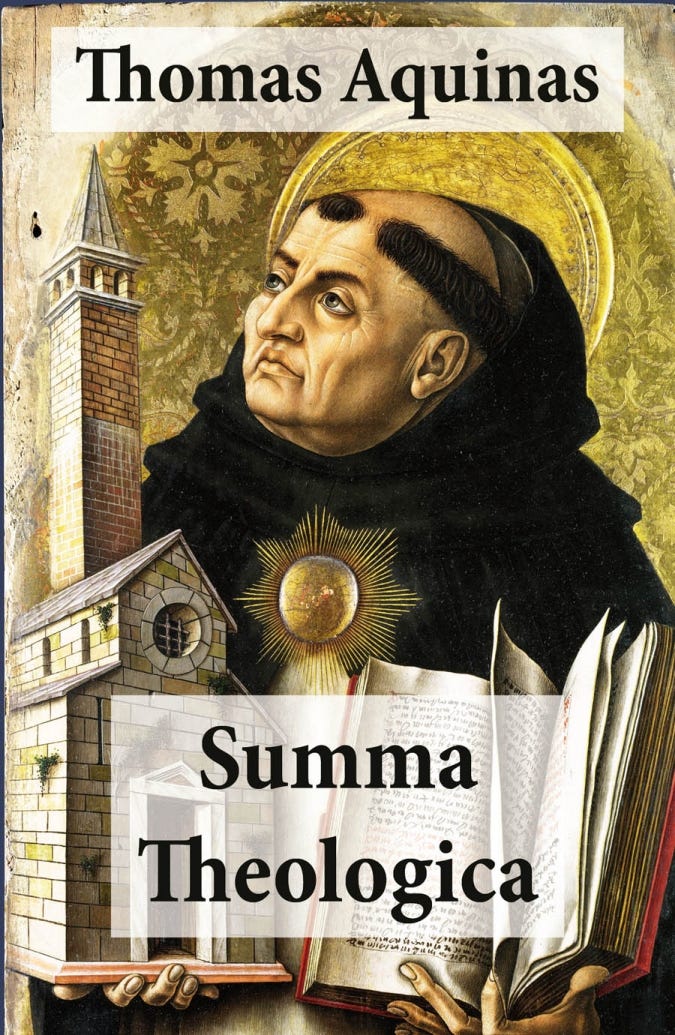
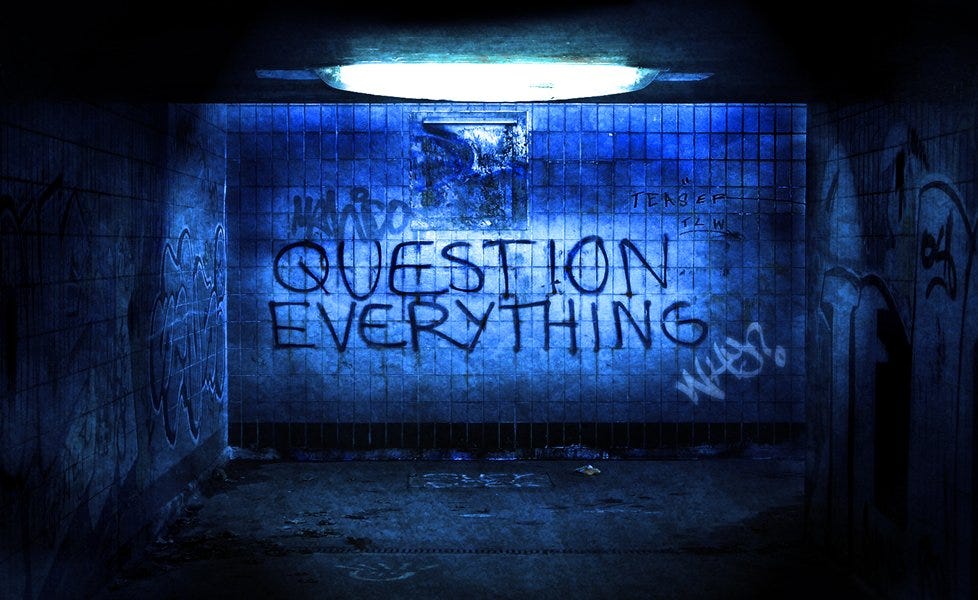
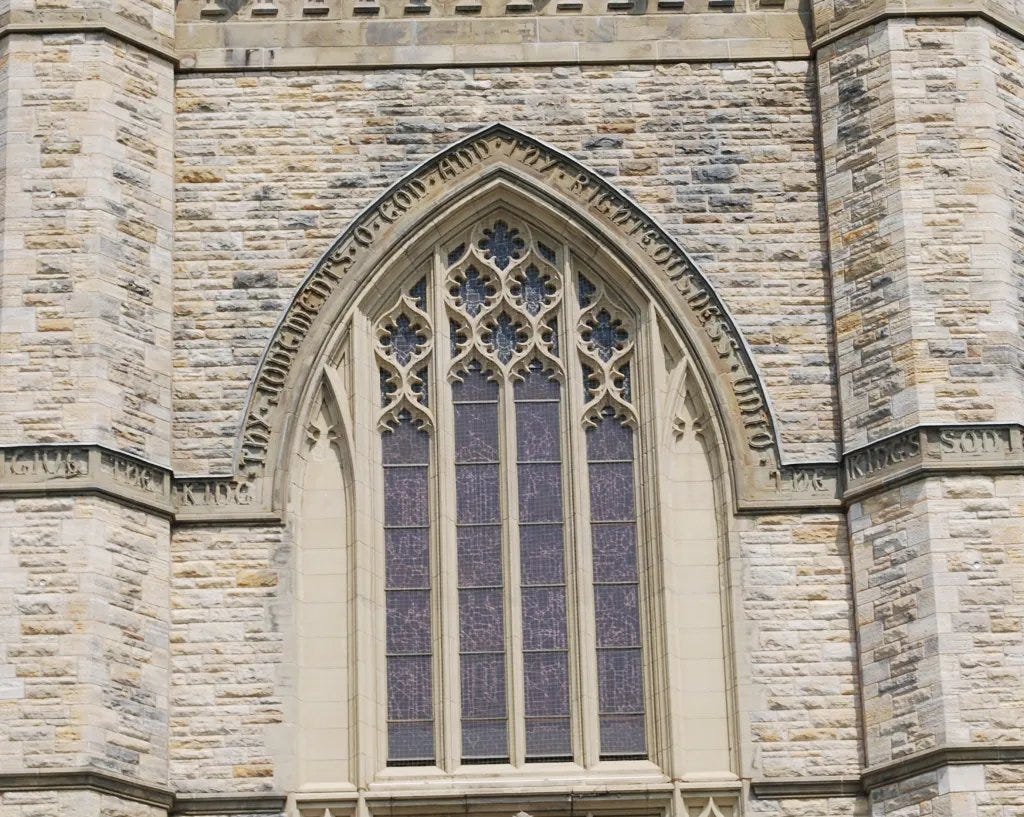
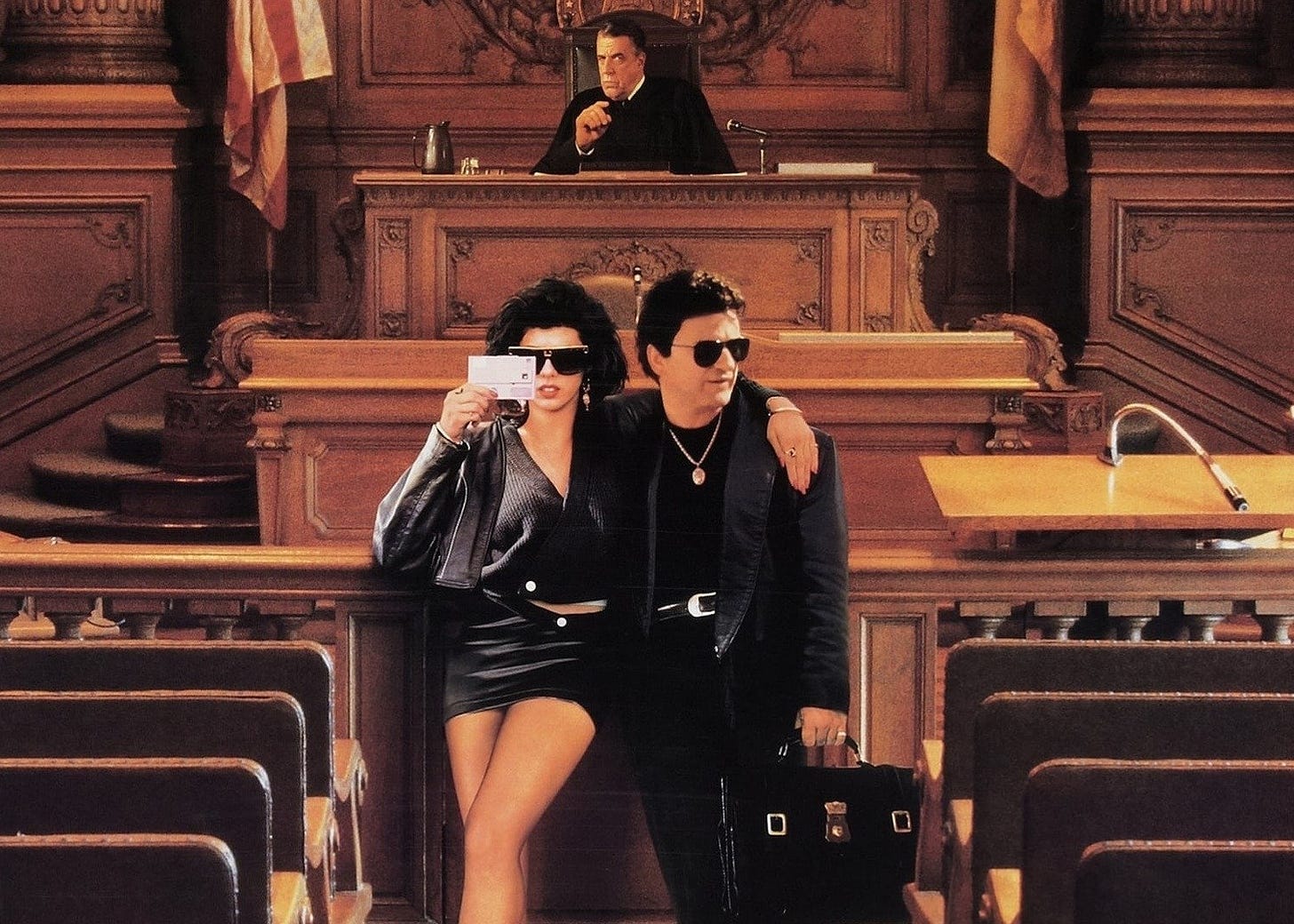



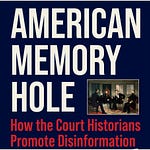




14. Without Justice, there is No Peace, w/Leighton Grey